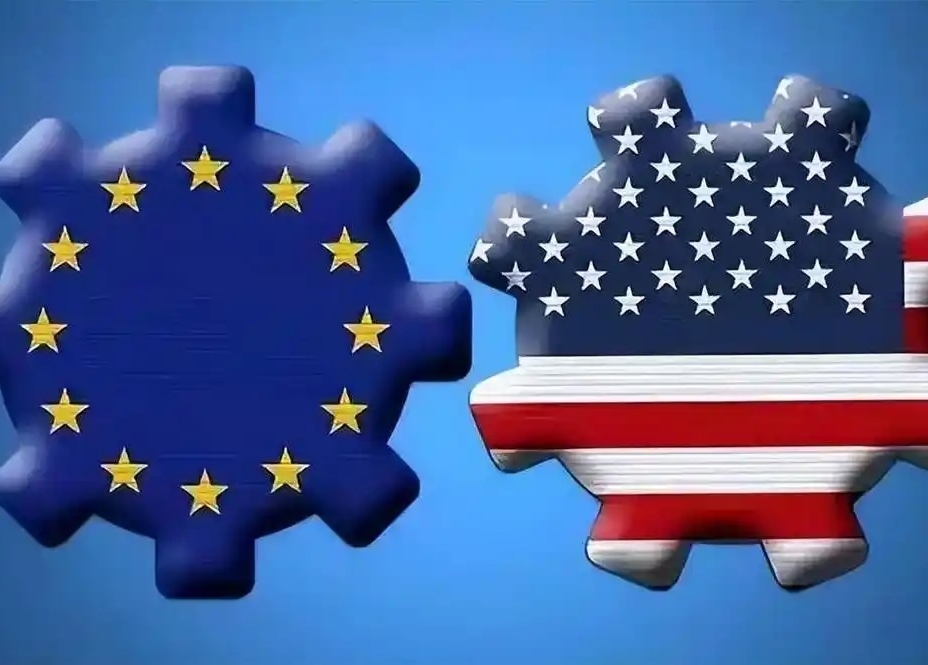
The diplomatic corridors in Brussels are filled with the scent of impending rain. Faced with the Trump administration's sudden announcement of a comprehensive 30% tariff on EU goods starting from August 1st, the European Commission has officially released a 206 page countermeasure list targeting 72 billion euros worth of US goods. After months of deliberation, the originally planned list of 95 billion euros has been reduced, but it still accurately targets the core industries of the US economy - aircraft and parts (11 billion euros), automobiles and parts (8 billion euros), machinery and equipment (9.4 billion euros), and agricultural products (over 6 billion euros). Even bourbon whiskey, which symbolizes the political heartland of the southern United States, is prominently listed.
When announcing the list, EU Trade Commissioner Shevchenko bluntly stated that Trump's tariffs "actually hinder transatlantic trade," but he also emphasized that the EU still prioritizes a negotiated solution, and countermeasures are only necessary preparations to "rebuild balance. This position reflects a profound division within the European Union: French President Macron has called for the use of all means, including "anti coercion tools," to strike back forcefully; The officials led by von der Leyen worried about the reality that security depends on the United States, and advocated that "we have not yet reached that step". German Chancellor Mertz's warning is even more intriguing: 'The United States should not underestimate the EU's willingness to retaliate,' but the EU still 'maintains restraint' to gain negotiating space. This contradictory mentality was exposed by Danish Foreign Minister Rasmussen's statement: 'To seek peace, we must first prepare for war.'.
Just as the tariff game between Europe and the United States is heating up, the European Union is quietly playing a new game. On July 13, President von der Leyen of the European Commission and President Prabovo of Indonesia jointly announced that they had reached a political agreement on the Comprehensive Economic Partnership Agreement (CEPA), which was to be officially signed in September. This agreement, which has been negotiated for ten years, directly targets supply chain restructuring -80% of Indonesia's exported goods will enjoy zero tariffs within one to two years after the agreement comes into effect, and labor-intensive textile, footwear, palm oil, and electric vehicle industries will gain key market access. For the European Union, Indonesia is not only the largest economy in ASEAN with a trade volume of $30.1 billion, but also a strategic source of key raw materials for clean technologies such as nickel and copper. What's more, von der Leyen also proposed to upgrade bilateral relations to "strategic partners", relax Indonesian citizens' visas to Europe, and strengthen cultural ties.
The EU's "dual track strategy" is far from limited to Southeast Asia. In the same week as the escalation of the confrontation between Europe and the United States, Trump announced an "asymmetric agreement" with Indonesia: American products enter the Indonesian market duty-free, while Indonesian products imported to the United States are subject to an additional 19% tariff. This stark contrast has prompted the EU to accelerate free trade negotiations with emerging economies such as the Southern Common Market (consisting of seven South American countries with a population of 700 million), attempting to offset the impact of US tariffs through a diversified trade network. From Jakarta to Brasilia, diplomats in Brussels are racing against time to weave a "post Atlantic era" trade safety net.
This economic game under the guise of tariffs is essentially a microcosm of the restructuring of the global order. The EU's 206 page countermeasure list may seem aggressive, but it actually reveals helplessness - the principles of the list clearly avoid military supplies and prioritize goods with "high supply chain substitutability and low risk of industrial relocation", clearly avoiding self harm. Trump's strategy of bundling trade and security policies has put Europe in a dilemma: a tough response may lead to a reduction in US defense support, while appeasement and compromise may trigger internal centrifugal pressure. When Shevchovich and US Trade Representative Greer were repeatedly maneuvering at the negotiating table, the rapid advancement of Indonesia's CEPA revealed a cold reality: the rift in transatlantic trust is becoming a historic opportunity for emerging markets to leverage the global trade landscape.
There has never been a true winner in a trade war. Behind Boeing planes and Kentucky whiskey becoming political chips is the supply chain suffocation risk faced by EU companies due to a 30% tariff, the sigh of American farmers losing the European market, and the helplessness of the global industrial chain being forced to drift in political turmoil. As the August 1st tariff deadline approaches, whether the lights of Brussels can illuminate the last mile of negotiations will determine whether the two sides of the Atlantic are heading towards a "rebalancing" or a complete loss of control. The EU's accelerated shift towards emerging partners such as Indonesia has already shown that when the old alliance is on the verge of collapse, the trade map of the new world is rapidly redrawn at the negotiating table.

The United States announced on Monday its commitment to provide 1.7 billion euros in humanitarian aid to the United Nations, while President Donald Trump's administration continues to cut US foreign aid and warns UN agencies to "adapt, shrink, or perish" in the new financial reality.
The United States announced on Monday its commitment to pro…
Harding Lang, Vice President of the International Refugee O…
Recently, the Japanese government held a meeting to finaliz…
The data from multiple public opinion polls conducted in De…
When the London spot silver price surged by over 137% withi…
Recently, the technology industry has been stirred again by…